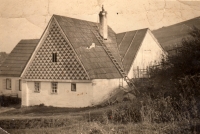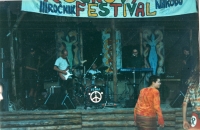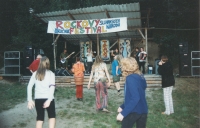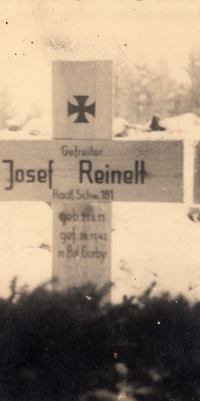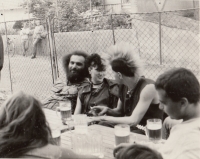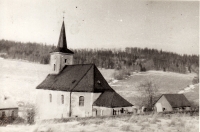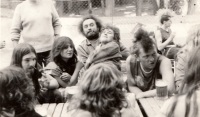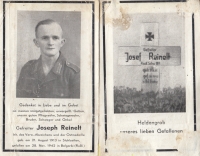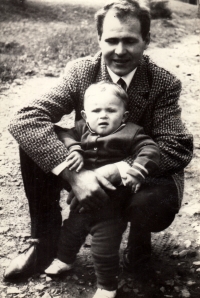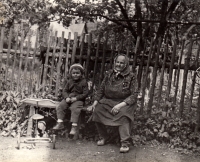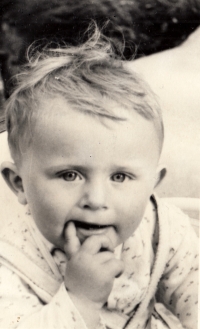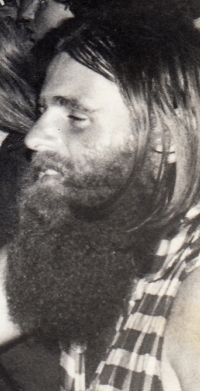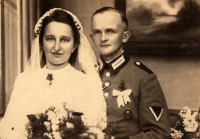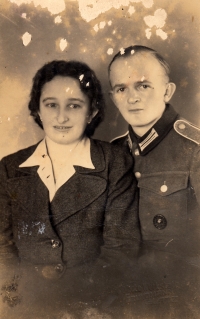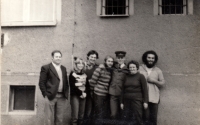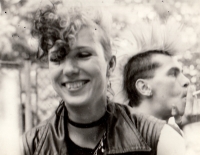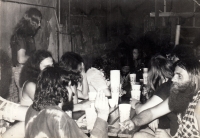Krakonoš from Rychleby

Download image
Petr Oravec was born on 3rd June, 1964 in a small village of Travná in Javornicko region in Rychlebské mountains. Already in his childhood he revolted against communistic regime and refused to join the youth association and sought his friends completely elsewhere. Back then they were called “máničky”, “androši” or “vlasáči” (hairies). Along with them he used to visit festivals presenting the bands the communistic regime prohibited. More than once he experienced raids of police forces of the Public Security and got bruised all over his body. For example in spring 1983 he experienced a brutal intervention of the Public Security against a cultural event in Žabčice. From the military service he was preliminary released, as he successfully faked kidney disease. Then he lived in Prague for several years. There he also used to meet up similarly thinking people and visited band concerts of the new wave and punk. In 1988 he signed a petition called Several sentences. Right before the fall of communism he returned back to Travná. Following the revolution he opened a small shop and later a pub U Oravců. He kept meeting his old friends and organized concerts in his pub and later also an original music festival called Czech-Polish pojiwo, where Czech and Polish bands performed.
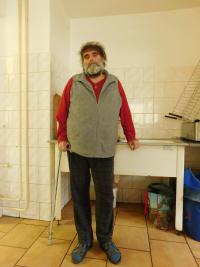
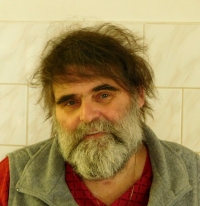
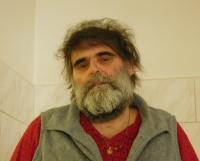
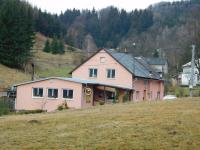
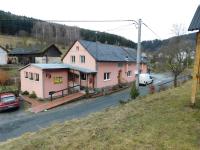
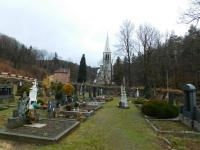
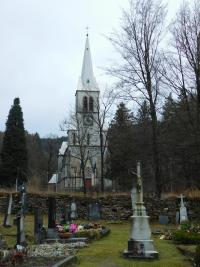
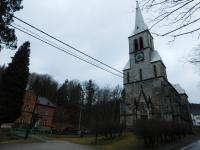
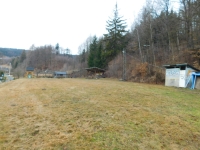
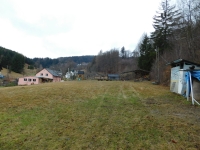
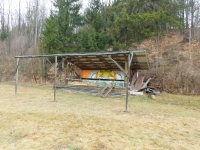
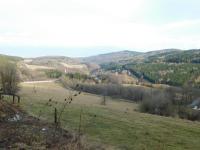
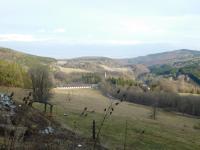
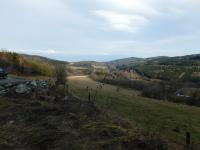
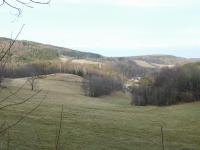
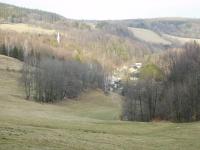
!["Máničky" [hairies´] event at Petr Oravec's in Travná, 1980s](https://www.memoryofnations.eu/sites/default/files/styles/witness_gallery/public/2024-04/Akce%20m%C3%A1ni%C4%8Dek%20u%20Petra%20Oravce%20v%20Travn%C3%A9%2C%2080.%20l%C3%A9ta.jpg?itok=mmUoRlzO)
!["Máničky" [hairies´] event at Petr Oravec's in Travná, 1980s](https://www.memoryofnations.eu/sites/default/files/styles/witness_gallery/public/2024-04/Akce%20m%C3%A1ni%C4%8Dek%20u%20Petra%20Oravce%20v%20Travn%C3%A9%2C%2080.%20l%C3%A9ta-001.jpg?itok=Y3-_hC5a)
!["Máničky" [hairies´] event at Petr Oravec's in Travná, 1980s](https://www.memoryofnations.eu/sites/default/files/styles/witness_gallery/public/2024-04/Akce%20m%C3%A1ni%C4%8Dek%20u%20Petra%20Oravce%20v%20Travn%C3%A9%2C%2080.%20l%C3%A9ta-002.jpg?itok=e0MrfgBA)
!["Máničky" [hairies´] event at Petr Oravec's in Travná, photo taken at the railway station in Javorník, 1980s](https://www.memoryofnations.eu/sites/default/files/styles/witness_gallery/public/2024-04/Akce%20m%C3%A1ni%C4%8Dek%20u%20Petra%20Oravce%20v%20Travn%C3%A9%2C%20foceno%20na%20n%C3%A1dra%C5%BE%C3%AD%20v%20Javorn%C3%ADku%2C%2080.%20l%C3%A9ta.%20l%C3%A9ta.jpg?itok=zc3PqAwx)
!["Máničky" [hairies´] event at Petr Oravec's in Travná, photo taken at the railway station in Javorník, 1980s](https://www.memoryofnations.eu/sites/default/files/styles/witness_gallery/public/2024-04/Akce%20m%C3%A1ni%C4%8Dek%20u%20Petra%20Oravce%20v%20Travn%C3%A9%2C%20foceno%20v%20Javorn%C3%ADku%2C%2080.%20l%C3%A9ta.%20l%C3%A9ta-001.jpg?itok=lY9z8tht)
!["Máničky" [hairies´] event at Petr Oravec's in Travná, 1980s, photo taken at the railway station in Javorník, 1980s](https://www.memoryofnations.eu/sites/default/files/styles/witness_gallery/public/2024-04/Akce%20m%C3%A1ni%C4%8Dek%20u%20Petra%20Oravce%20v%20Travn%C3%A9%2C%20foceno%20v%20Javorn%C3%ADku%2C%2080.%20l%C3%A9ta.jpg?itok=oyca8ErZ)
